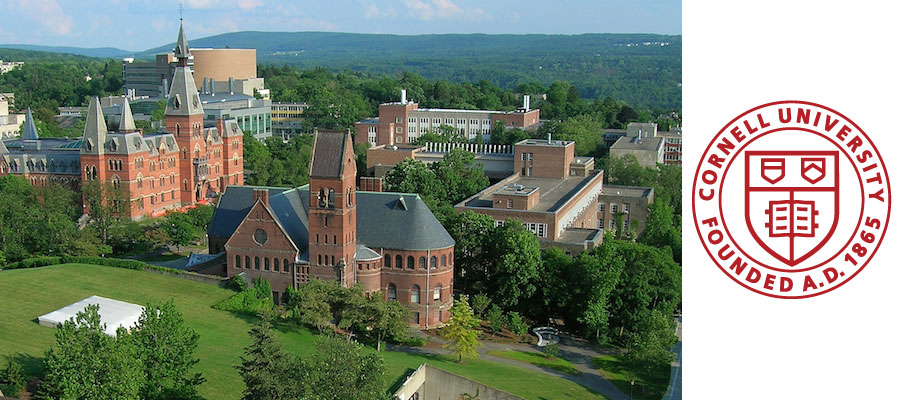The Society for the Humanities at Cornell University invites applications for residential fellowships from scholars whose research projects reflect on the 2020-21 theme of FABRICATION. Six to eight Fellows will be appointed. The fellowships are held for one academic year.
Fellows include scholars and practitioners from other universities and members of the Cornell faculty released from regular duties. Fellows at the Society for the Humanities are “residential,” and will collaborate with one another and the Taylor Family Director of the Society for the Humanities, Paul Fleming, Professor of Comparative Literature and German Studies. Fellows spend their time in research and writing during the residential fellowship, and are required to participate in a weekly Fellows Seminar workshopping each other’s projects and participating in lively discussions on readings based on the yearly theme.
The nature of this fellowship year is social and communal—Fellows forge connections outside the classroom and the lecture hall by sharing meals following the weekly seminar and attending post-lecture receptions and other casual events throughout the year. Fellows live and work in Ithaca, NY, and are expected to be in their offices on campus frequently. All applicants for Society Fellowships should share in this commitment to creating a supportive and intellectually stimulating community.
Fellows teach one small seminar during their fellowship year appropriate for graduate students and advanced undergraduates. Though courses are designed to fit the focal theme, there are no additional restrictions on what or how the course should be taught. Fellows are encouraged to experiment with both the content and the method of their seminar particularly as it relates to their current research.
2020-21 Focal Theme: FABRICATION
The Society for the Humanities at Cornell University seeks interdisciplinary research projects for residencies that reflect on the theme of fabrication. Embodying two strands of production – creation and concoction, making and faking, forming and falsifying – fabrications are both made up and made real.
Fabrication is bound up with fiction, language, and storytelling: from spinning a yarn and weaving a tale through embellishment to lying and falsehood. Fabrication recalls the old adage that ‘the poets lie,’ pondering the relation between invention and deception. While today it seems that the pejorative sense of fabrication often falls to politicians, this dual valence nonetheless raises the question of whether art, fiction, narrative, and historiography ever fully extricate themselves from suspicion. This is especially the case in the age of quantification and ‘hard data,’ with its attendant effects on the humanities – and yet numbers without narrative tell us nothing, have no story to tell.
In so far as homo faber demarcates the human as artisan, as one who works and produces (or perhaps refuses to participate in an economy of production and reproduction), fabrication necessarily calls upon studies of labor, manufacturing, and (mass-)production. In this sense, fabrication connotes a materiality or tactility that stretches from the factory floor to the loom, and can be apprehended in metal and wood, plastics and dyes, canvas and paper, clays and concretes, fabrics and textiles.
From the weaving of Penelope to the communal knitting of ‘pussy hats,’ fabrication is gendered and embodied, mythologized and politicized, turning domestic crafts (often ‘women’s work’) into acts of resistance. Through fashion, costume, adornment, and drag, fabrication is woven into questions of embodiment, gender, sexuality, performance, and transformation. Communities and identities can be crafted, agency conjured, systems of power refashioned.
Raising the relation between the high and low arts, the artist and the worker, the poet and rhetorician as well as the gendering of production and reproduction, fabrication lies at heart of the art and humanities.
The Society for the Humanities invites applications from scholars and artists who are interested in participating in a productive, critical dialogue concerning the topic of fabrication from a variety of disciplinary perspectives.
Qualifications
Fellows should be working on topics related to the 2020-21 theme of FABRICATION. Their approach to the humanities should be broad enough to appeal to students and scholars in several humanistic disciplines. Applicants must have received the Ph.D. degree before January 1, 2019. Applicants must also have one or more years of teaching experience, which may include teaching as a graduate student. International scholars are welcome to apply, contingent upon visa eligibility.
